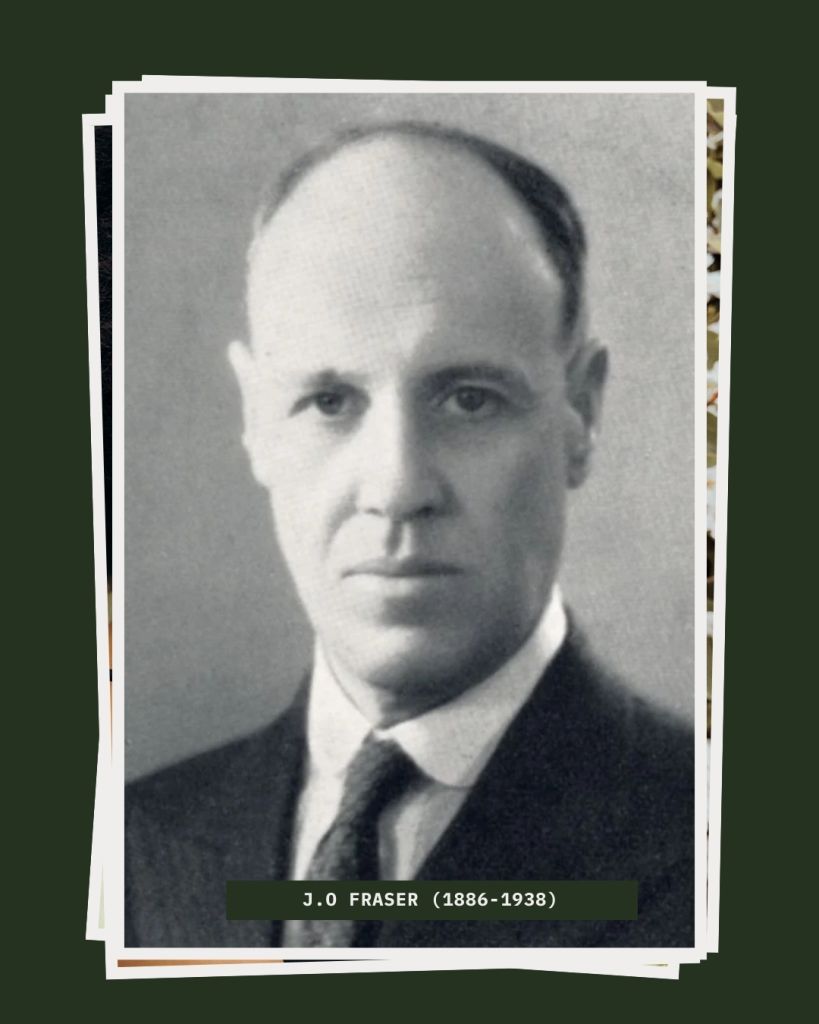The successful missionary, for example J.O. Fraser, balances a strong personality with an equally strong ability to listen and learn, to hear from others.
“The ideal cross-cultural missionary leader combines boldness and initiative with humility and teachability. This balance allows them to lead with strength while remaining open to instruction, correction, and growth – qualities that make for both effective leadership and fruitful cross-cultural engagement.”
Here are three keys to help us live that way:
1. Discovery, to be equally or more interested in hearing from others than in proclaiming my point of view;
2. Accountability, allowing those that I trust to speak into my life, realising that there may be 10 or 20 percent that I need to see but that I don’t see;
3. Teamwork, being convinced that there is gifting that lies in other brothers and sisters that I don’t have, but which I desperately need.
These and other qualities are so necessary for missionaries, who often have very strong personalities and strong personal convictions.
Missionaries tend to be convinced of their call from the Lord, as Paul was in Galatians 1:15-16.
“But when it pleased God, who separated me from my mother’s womb and called me through His grace, to reveal His Son in me, that I might preach Him among the Gentiles, I did not immediately confer with flesh and blood…”
Count the number times Paul uses ‘I’ and ‘me’ in that sentence. Not wrong in itself, but…
It is very easy for that strength of conviction to turn into stubbornness and an inability to hear what others are saying. Particularly dangerous is when that strength becomes a refusal to hear and respond to leadership.
Further comments (source unknown):
Several missionaries are renowned not only for their impact but also for their very strong personalities, marked by resilience, boldness, and an unwavering sense of purpose. Here are some notable examples:
• Mary Slessor: Known as “Mighty Mary,” she overcame a harsh upbringing in Scotland to become a pioneering missionary in Nigeria. Slessor’s tenacity and strength enabled her to live among the Okoyong and Efik peoples, where she confronted dangerous superstitions (such as the killing of twins), advocated for women’s rights, and mediated tribal disputes. Her courage and refusal to give up, even in the face of illness and hardship, earned her deep respect and allowed her to spread the gospel in areas previously unreached by Europeans.
• J. Hudson Taylor: Founder of the China Inland Mission, Taylor was known for his radical independence and determination. He adopted Chinese dress and customs, which was controversial among other missionaries, and insisted on trusting God alone for financial support. Despite being ostracized and facing significant opposition, Taylor’s strong personality enabled him to recruit hundreds of missionaries and leave a lasting legacy in China.
• Amy Carmichael: Despite chronic illness, Carmichael spent 55 years in India without returning home, fighting against child prostitution and caring for orphans. Her unyielding resolve and willingness to endure suffering for her cause made her a formidable figure in missionary history.
• Brother Andrew (Andy van der Bijl): Famous for smuggling Bibles into communist countries, Brother Andrew’s fearlessness and adventurous spirit defined his work. He regularly risked his life to provide persecuted Christians with spiritual resources, founding the Open Doors ministry, which continues to support Christians in hostile environments.
• David Livingstone: As a missionary and explorer in Africa, Livingstone’s driven and pioneering character led him to map vast regions and open up the continent for future missions. He endured countless hardships and rarely stayed in one place, always pressing forward with his mission.
• William Carey: Known as the “Father of the Modern Missionary Movement,” Carey’s relentless advocacy for global missions, despite strong opposition from his contemporaries, showcases a strong and persistent personality.
These individuals are celebrated not just for their faith, but for the strength of character that enabled them to overcome formidable obstacles and make a lasting impact on the world.
But…..
In cross-cultural missionary work, the most effective leaders balance a strong personality – characterized by boldness, resilience, and initiative—with a high degree of teachability and humility.
Strength of personality is essential for taking risks, persevering through hardship, and leading with conviction and vision. Missionaries often need boldness to step into unfamiliar situations, share their message despite opposition, and adapt creatively to new challenges. Teachability and humility are equally critical. Effective cross-cultural workers recognize they do not have all the answers and must be willing to learn from local people, mentors, and new experiences. Humility enables them to listen, adapt, and genuinely respect other cultures, which is foundational for building trust and effective ministry.
“Good cross-cultural workers recognize that they no longer belong to themselves but to Jesus, and, as such, there’s a humility about them… They crave new learning opportunities, seek out mentors, depend on others, and ask advice”.
Flexibility and adaptability further support this balance. Letting go of control and embracing a posture of learning – rather than always teaching – are vital for success in diverse cultural contexts.
In summary, the ideal cross-cultural missionary leader combines boldness and initiative with humility and teachability. This balance allows them to lead with strength while remaining open to instruction, correction, and growth – qualities that make for both effective leadership and fruitful cross-cultural engagement.



